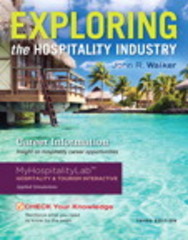Question
Do you agree or disagree and why. Provide a journal source. 1. A leader's inclusiveness could be interpreted as favoritism Being included can have different
Do you agree or disagree and why. Provide a journal source.
1. A leader's inclusiveness could be interpreted as favoritism
Being included can have different interpretations to every follower. A leader could be taking actions that they believe is a way to include a follower, but the follower might not interpret the action the same way and might feel more included through different actions. Some researchers view inclusive leadership in a way that "focuses on the relationship between a leader and follower" based on their interactions (Northouse, pg. 324). If the follower doesn't feel included and perceives that other followers are then there's the risk that they perceive the leader's actions as favoritism.
2. Inclusiveness could cause followers not to bring forth issues in fear that they could be deemed as non-inclusive by the leader.
Inclusive leadership still needs to have obvious behavior boundaries. Every follower should be included but that doesn't mean any bad behaviors by default. Issues between followers need to be addressed. If a follower perceives that nothing will be done for the sake of inclusiveness, they might hold back issues or concerns they have.
The "woke" social environment has tame or mild and an extreme side. At the basis of it all, the "woke" social environment is merely making a stand for everyone of all belief systems and backgrounds to have the ability to live life the way that they want to and give everyone access to the same opportunities. Woke means "to be aware of inequity and injustice" (MIT). The current social life views diversity as a mechanism for value creation. Inclusive leadership "encompasses action to ensure equity and justice within the group" (Northouse, pg. 333). If we don't take the mindset of expecting equity and fairness, then we can't ensure that it is present. If it is not present, then we can't expect an inclusive work environment to be possible. Leaders at the top are responsible for the state of the work environment. With inclusiveness means teams are better at "innovation, recognizing and stopping exclusion, and attracting and retaining top talent" which are all important to the overall well-being of the organization (National University). An organization's most important asset is its people. Innovation, stopping exclusion, and retaining talent all rely on people wanting to work at the organization and contribute positively to it. Without those things an organization is going to eventually fail.
Step by Step Solution
There are 3 Steps involved in it
Step: 1

Get Instant Access to Expert-Tailored Solutions
See step-by-step solutions with expert insights and AI powered tools for academic success
Step: 2

Step: 3

Ace Your Homework with AI
Get the answers you need in no time with our AI-driven, step-by-step assistance
Get Started


